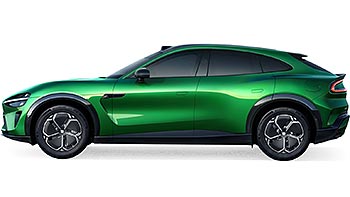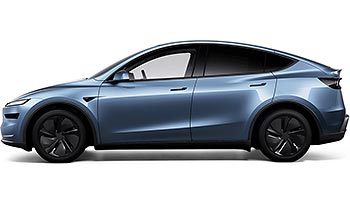Tesla publishes encouraging battery degradation data

Recent data from Tesla's 2023 Impact Report sheds light on the battery longevity of its popular Model 3 and Model Y electric vehicles. For those who plan on keeping their Teslas for the long haul or buying second hand, the news is good. The data reveals that after 200,000 miles of use, these EVs retain an average of 85% of their original battery capacity.
While the average degradation of 15% is noteworthy, it's important to consider that this figure is just that – an average. The data presented in Tesla's report shows a range of results, indicating that some batteries may perform better or worse than the average. However, the report suggests that a significant portion of Tesla's fleet – around 68% – should maintain over 80% of their battery capacity even after clocking 200,000 miles.

Tesla's flagship models, the Model S and Model X, boast even better battery performance. After 200,000 miles, these vehicles retain an average of 88% capacity.
The question of battery longevity is a common concern for prospective EV buyers. Tesla directly addresses this issue in its report, stating: "...we often get asked: Will I need to replace my battery at some point in the future? The answer is no." The company asserts that its extensive experience in EV manufacturing, spanning over a decade, provides a robust dataset showcasing the long-term performance of its batteries.

Tesla's data highlights a crucial aspect of electric cars: their potential for longevity. If batteries can consistently last for the lifespan of the vehicle, it not only addresses a major consumer concern but also reinforces the sustainability argument for EVs. After all, a long-lasting car is a more environmentally friendly car.
It's worth noting that the data presented in Tesla's report is specific to the Long-Range versions of the Model 3 and Model Y, which are typically equipped with 2170-type cylindrical battery cells. The data does not include Standard Range models or those with Tesla's in-house 4680-type cells.

As the EV market continues to expand, battery longevity will remain a critical factor for consumers. Tesla's data suggests that its batteries are designed to go the distance, potentially outlasting the average lifespan of a vehicle in both the US and Europe.
While individual results may vary, the overall message seems to be clear: Tesla's electric cars are built to last. At least 68 percent of them, the other 32 percent might not be so lucky. The problem with any data is that you can use the same set to get different answers. 32 percent of Teslas will have their battery degraded by more than a fifth, which is a lot, but then 200,000 miles of charging means at least 800 charging sessions, and for a battery, that's a lot. Whichever way you read the results, it's good to actually have a reliable source, so kudos to Tesla.
Related
Reader comments
- Anonymous
This, exactly this. Besides. Other factors such as. How many cycles ie (city or highway driving) highway being worse for evs. And the temp of the battery day by day i.e. Las Vegas desert or up in Canada.
- 23 Jun 2024
- Ibx
- Anonymous
This information doesn't help much. Most cars make 10-15 000 km per year, so most cars will never reach the distance from the article. Typical ICE car last 15-20 years. I want to know how good battery will be after 15 years!
- 23 Jun 2024
- LiP
- omgyeti
Meanwhile I’m over here at 56k miles and already down to 88%. Hopefully it will start doing that slow down everyone talks about It’s been a linear slide to where I am so far. (In case anyone asks, I charge my YLR to 75% at home)
- 22 Jun 2024
- 49i

















